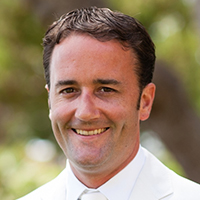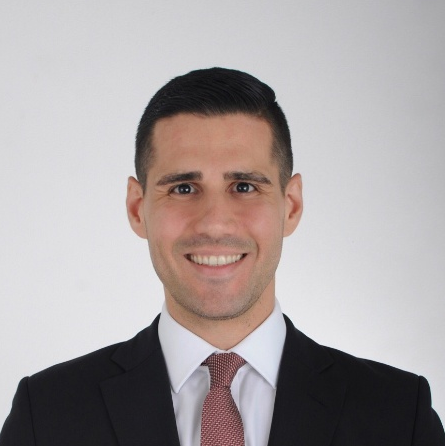I'm a very direct, outgoing person. I had to learn patience and collaboration.
Jarat Ford

Why were you attracted to INSEAD?
For the same reasons as in high school when I received a nomination from late Senator Edward “Ted” Kennedy (Massachusetts) to attend the United States Military Academy at West Point – I love the prestige and tradition. INSEAD is the oldest MBA school in Europe and like West Point, is a tier-one academic and leadership institution.
Having spent most of my professional career abroad, I envisioned myself as an ambassador for my country. INSEAD, the ‘Business School for the World’, was the perfect fit and offered me the opportunity to have a global business school experience.
What did you do straight after leaving the armed forces?
After completing my military service I worked briefly as an Associate for Booz Allen Hamilton in the Washington, D.C. area and left to pursue a startup opportunity in Abu Dhabi with Lexington Group. We provide management consultancy and training services, mainly to the public sector in the areas of defence, public safety and security.
Why did you feel the need to go back to business school?
When I first accepted the position with Lexington, I did not completely understand the risks of joining a start-up business overseas. If I had attended INSEAD earlier, I might have asked different questions before joining the company. But at the time, I was simply driven to accomplish my mission. After all, I had a room in a hotel, no one was shooting at me, and I had the opportunity to experience a new country, so why not stick it out?
Eventually, I managed to secure some business opportunities, and for a while, thought I was on track to achieve great success in both business and financially. Then I started experiencing the trials and tribulations of a small business. We lost a major contract and I came to the realisation that I was missing critical skills in finance and marketing. It was time to get some business training.
What surprised you most about the programme?
The group work was the most surprising. I’m a very direct, outgoing person. I had to learn patience and collaboration: How to be the follower and not the leader. I am glad that I was put into that environment. Academically, I also felt quite humbled at times. Everyone in the programme is so smart, yet also highly supportive. We bonded very well as a class, especially in the Middle East section.
How has the GEMBA helped you at work?
I have already converted what I have learned into one real-life project. I took a strategy course in Singapore and then applied the “Blue Ocean” methodology in an implementation essay about a proposal involving unmanned aircraft (what the media call drones). The frameworks enabled me to structure and present a case based on limited information but with considerable confidence. The outcome was a big consulting contract that will take two years to complete.
Which other classes have you particularly benefited from?
Organisational Behaviour, which is the X-factor of business, was a huge plus for me. It links everything together. You can be a brilliant finance guy, for example, but if you don’t know how to act with others in an organisation, your technical skills are of no use.
How did you go about choosing your elective courses?
I purposely chose subjects that would challenge my skill sets, such as finance and marketing. The lack of exams allowed me to experiment and validate my weaknesses at the same time. The electives helped me to know what I didn’t know, to gauge my limitations and to judge where I could start to become dangerous!
What do you think about the faculty?
Before I arrived I had a vision of old, tenured professors. But these guys are young, cool, and brilliant and they answer your emails! I was blown away by their relevance as well as their intelligence. I’m trained to notice details, and I can tell you the faculty doesn’t have many flaws.
How do you cope with studying and working at the same time?
It has been extremely challenging because I don’t have anyone to take over when I am out of the office and I average 60 hours a week. During the Abu Dhabi modules, I benefited from being able to go back to the office during lunch breaks. But in Fontainebleau and Singapore, I benefited from being able to relax more. It works both ways. But now I’ve proven I can develop professionally while working. I’ve already signed up for Arabic language classes for when I finish the GEMBA.
What else will you take away from INSEAD?
The most powerful tool is probably the great lifelong network I’ve acquired. In one of our Organisational Behaviour classes we analysed our previous networks and I realised that mine had not been diverse or multicultural enough to be fully effective. Now I know someone in almost any country or industry you can name. And they are all people I can call for advice. INSEAD is the “Business School for Life”, as well as “for the World”!




